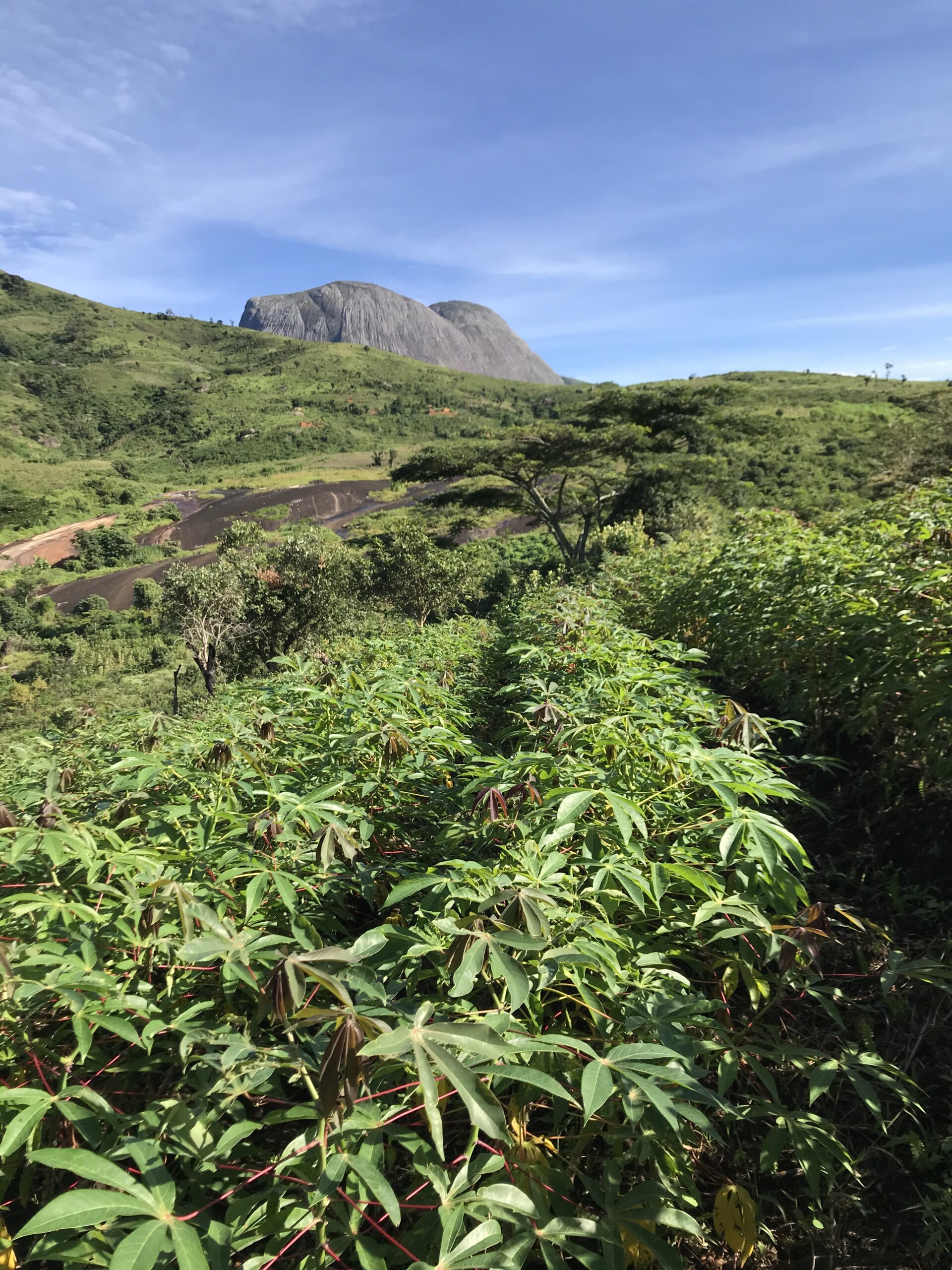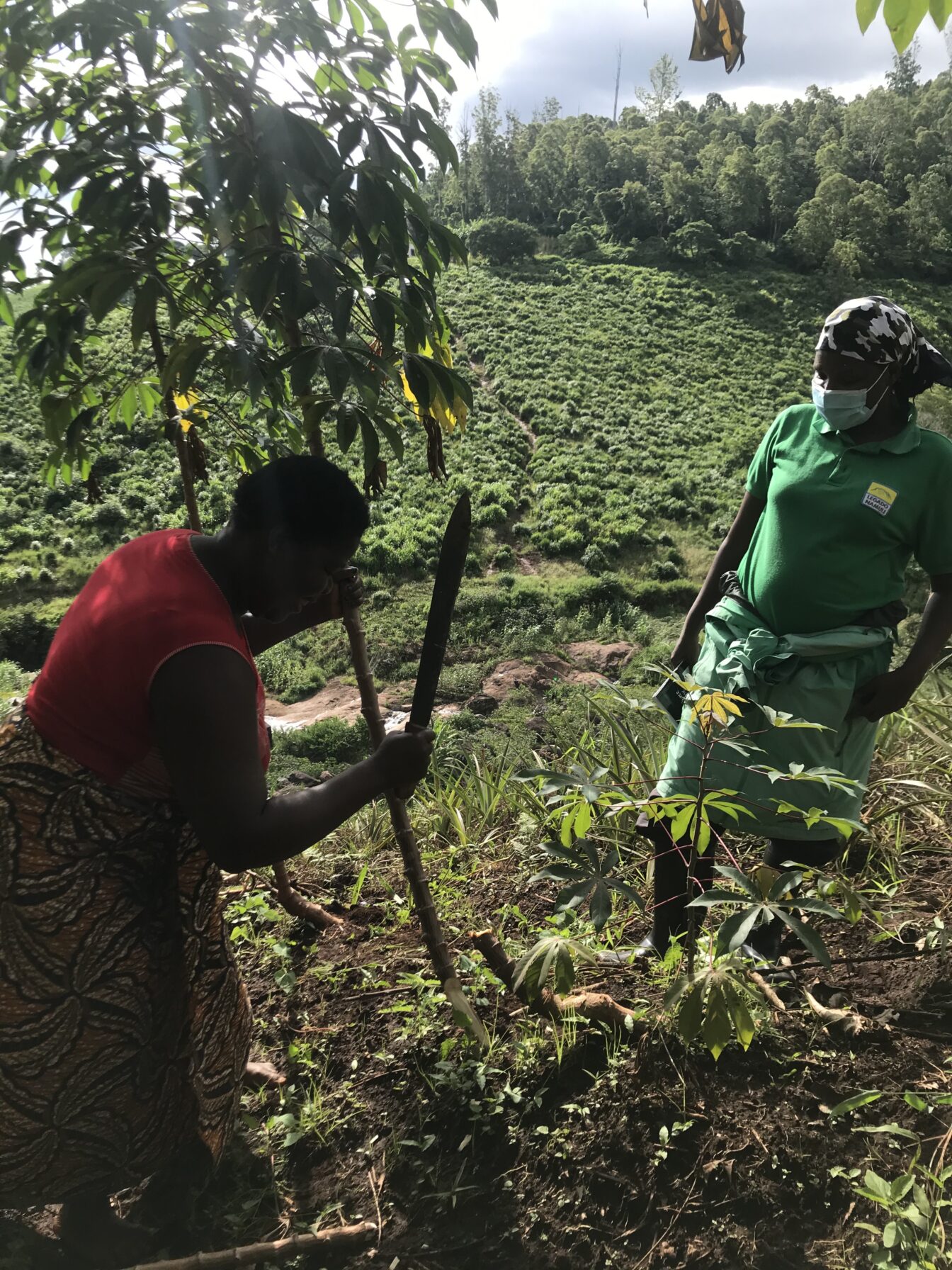“Look at this one,” says Sr. Eugénio, placing his palm on a cassava plant as he looks over his family cassava ‘machamba’ (a cultivated field). “It looks very healthy — it’s taller than all the others,” he says, “and it beats all the obstacles thrown at it.”
Sr. Eugénio is a farmer from the Curuca community close to Mount Namuli in Mozambique. He and his neighbors are on a mission to test improved varieties of cassava against the common diseases that often affect their growing on the slopes of Namuli. They’ve each identified the improvement of agricultural yields as a key component of their personal and communal legacies, and together they are working towards turning those legacies into a thriving future — for themselves but also the land around them.
Cassava is a woody shrub that is very popular with local farmers and cultivated for its edible starchy root. The leaves can be smashed into a paste and cooked as well. Both are very nutritious and place cassava at the center of Lomwe’s diet. Cassava thrives in almost any soil, provides most of the necessary nutrition, and is suitable for storage underground over long periods of time without decay. That’s why cassava is a logical place for us to begin with if we want to improve food sovereignty for the families in Namuli.
With the support of scientists at the Mozambican Institute of Agronomy (IIAM) in Nampula in the lab our team launched tests of two improved varieties of cassava with a dozen Namuli farmers on the fields. Three months after the first plants, the new varieties do seem to be growing taller and healthier than the common varieties. In time Sr. Eugénio will tell if the roots are as delicious.
Apart from the on-going monitoring in the experimental fields, our team organizes short and practical information sessions on good practices of selection, cutting, and conservation of cassava cuttings with the communities. If continued to prove successful, our joint efforts to revisit the basics can have a real impact on food sovereignty for Sr. Eugénio’s family and beyond — a legacy we are proud to share with you all.


